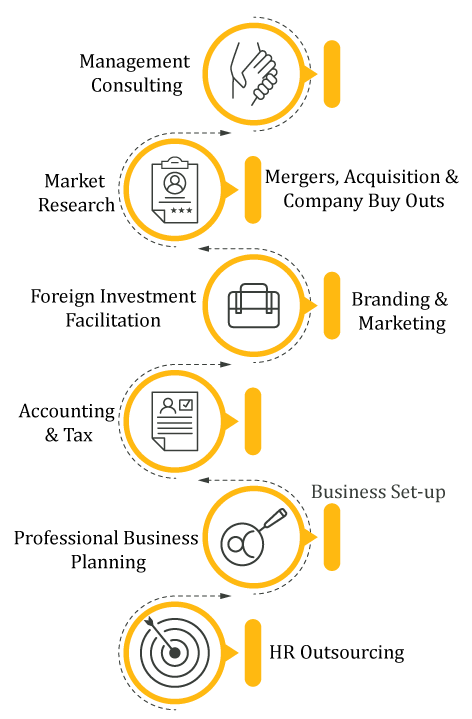Market Research In Kenya: Discover the 3 Key Factors That Determine Market Research Success In Kenya
Market Research In Kenya – In the Previous article, we took a look at why your company should do Market Research. We also analysed the periods when it’s appropriate to do a market research in Kenya.
This article will answer to other questions. What do you research during your company Market Research In Kenya?
What to Research
Market Research in Kenya can be a daunting task. Especially for foreigners who do not yet have a full grasp of the diversity of the country’s economy.
As such, it can be challenging to determine the areas your market research should concentrate on. However, here are the key sections a successful research analyses:
- Ideal Customer
Find out their gender, age, income level, occupation, lifestyle, level of education attainment. Also look into the size of the potential customers, their language and religion.
Find out what they are currently buying now. What are their current buying habits? Which suppliers do they prefer and what features of their products do they prefer most?
Research into why they buy what they currently buy and what it would take to have them buy from you.
Once you have this basic information, it’s time to delve deeper. This implies doing projections based upon your target audience. Sample questions include:
- What are the estimated sales you expect from your audience?
- How many of your target audience will become repeat customers?
- How affected will your audience be by changes in the local environment? For example, what happens if a local factory closes down.
- How will your target be affected by governmental policies? For example, an increase in taxes.
- How will they be affected by socioeconomic changes?
Tools you can use to do customer market research in Kenya include:
- Use of questionnaires.
- Google Trends – This tool helps you analyse how searches on Google have changed over time.
- Social Media – Analysing social media keeps you up to date with current relevant topics.
- Keyword research – Understanding what your target audience is currently searching on Google can help you understand what they want and need.
- Local Libraries.
- Local Government Offices.
- Online sources of information such as:
- Competition
“If you know the enemy and know yourself, you need not fear the result of a hundred battles. If you know yourself but not the enemy, for every victory gained you will also suffer a defeat. If you know neither the enemy nor yourself, you will succumb in every battle” Sun Tzu
Market research in Kenya isn’t complete without a careful look at what your competition is up to. Only when you have a clear understanding of the forces at play can you set a plan of your own in action.
The first step in your competition research is to find out who they are. Make a list of all the major competitors within your range of operation. You can do a search on the internet, look at local listings or even the yellow pages.
Competition may be local or from companies not based at your current location. Therefore, find out the source of all the competing products in the market.
Once you know the competition, it’s time to gather data about them.
Find out:
- What products or services are they offering and what are their prices?
- What are their unique selling points?
- How is the quality of work and service provision?
- What are their hours of operation?
- Why do customers buy from them?
- What are their marketing and advertising techniques?
- What niches of the market do they serve and dominate?
Answering these and other questions may be the hard part in doing competitor market research in Kenya. However, here are a few tips that could help:
- Make a personal visit – Nothing beats a first-hand experience. Go visit your competition, use their products and services and take a look at their premises. Look at how they treat clients and what prices they offer.
- Speak to their customers and ask questions.
- Speak to their employees, suppliers and even vendors. They may or may not talk to you but try.
- Visit industry related expos and trade shows where they are presenting and visit their booth.
- Look up information from previous financial documents, press releases, industry publications, internet search e.t.c.
The above can look daunting. The good news is, you do not, and probably will not, get all the information on your competition. It’s true, the more you know the better you will be prepared. However, don’t get stuck trying to understand them perfectly. Know enough and move on.
- Industry
When doing market research, taking a look at your industry can be especially eye opening. For an in-depth perspective, your research should look at:
- A general overview of the industry.
- Your company position with that industry.
When looking at industries in Kenya, your research should focus on:
- Industry Trend – Where is the industry now and where will it be in the coming future? You will want to know whether it’s growing or diminishing.
- Economic Indicators – Look at the factors that influence the industry e.g. what effect does increase in cost of production have on the price of goods or service.
- Local or International – Find out where the industry is strongest, whether locally or internationally, e.g. coffee, though made in Kenya, has its biggest market overseas.
- Market Share – Find out who the dominant players in the market are and what size of the market they control. In Kenya, Safaricom controls 71% of the telecommunications industry as of 2017.
- Regulations – Note any regulatory issues that affect the industry, both current and future ones. Ensure you know what bodies can influence the industry.
- Industry Publications – What means does the industry disseminate information to the members and public? Note any publications, conventions, associations e.t.c. that the industry uses.
The industry data gives you a strategic view of the entire scene. Its importance cannot be underestimated.
Conclusion
Doing market research in Kenya is not a walk in the park. However, the importance of this step cannot be overstated. As you embark on the journey of doing market research for your company, keep the above factors in mind.
Click on this Link to contact us today for help in Market Research






